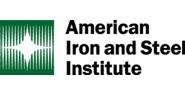Market Data

March 25, 2014
Executives Bring Steel Industry Jobs Focus to Capitol Hill
Written by Sandy Williams
Steel industry leaders met with members of the Congressional Steel Caucus this morning (March 25, 2014) to discuss the need for policy reform on trade, energy, environment and infrastructure in order to keep US industries competitive. SMU has reprinted the short version of the American Iron and Steel Institute press release below. The full testimonies of the steel executives may be read at the AISI website, http://www.steel.org/
WASHINGTON, D.C. – Chief executives from a number of the leading steel companies in the U.S. today told members of the Congressional Steel Caucus that many government policies on trade, energy, environment and infrastructure need to be reformed to ensure U.S. industrial competitiveness and preserve American jobs in steel and other manufacturing sectors. Mario Longhi, president and chief executive officer of United States Steel Corporation; John Ferriola, chairman, president and chief executive officer of Nucor Corporation; Mike Rehwinkel, executive chairman of EVRAZ North America; Mike Rippey, president and chief executive officer of ArcelorMittal USA; and Charles Schmitt, president of SSAB Americas, this morning testified before more than a dozen congressman – most from steel producing states.
The CEOs noted that the industry continues to face the challenge of continuing high levels of unfairly traded imports in recent years. In the first two months of this year, finished steel imports have increased by an additional 15 percent, capturing an unacceptably‐high 25 percent of the market.
Longhi said, “Earlier this year, we were disappointed that the Department of Commerce issued preliminary findings that failed to recognize and punish illegal South Korean dumping made possible through interwoven networks of related companies, all created to evade our laws and conceal the true cost of producing and importing oil country tubular goods (OCTG). The United States was founded on principles of justice, equality and fairness and it is sustained by a transparent rules-based system of law. All we ask for is a level playing field – the one our trade laws promised we would have.”
Ferriola said, “We are doing our part to grow the economy by investing in the U.S. and creating jobs. We need our government to do its part too by backing up U.S. industry with strong trade enforcement. U.S. steel producers are among the lowest cost producers in the world. We enjoy clear advantages in practically every aspect of steelmaking, but the disregard many of our competitors have for the global rules of free trade wipes these advantages out. Our government cannot let cheaters off the hook. We need the government to go after unfair trade practices whenever and wherever they occur. We welcome competition, but it must be on commercial terms.”
Rippey, who discussed the state of the steel industry and pressed for enhanced infrastructure investment, said, “Our economic competitors around the world are on a crash course of investing in infrastructure. What these countries understand is that infrastructure investment means jobs. The steel industry certainly knows that – our employees make the steel that goes into our bridges, roads, rails, and ports. [But] the Highway Trust Fund will be depleted by this summer and the surface transportation program itself expires at the end of September. Today’s infrastructure crisis is a product of decades. It won’t be totally fixed by one bill, or in a short time. But we must reverse the decline and stabilize the systems.”
Rehwinkel, who is also Chairman of the Board of AISI, said, “The Keystone XL permit application has been in limbo for over two thousand days. If the United States is serious about creating jobs, moving our economy forward and controlling our own energy future, that kind of delay is unacceptable. The economic benefits of the Keystone project go well beyond the pipeline itself. There will be hundreds of miles of additional pipeline needed to construct feeder lines and substantial amounts of additional processing equipment will be needed too. This will create significant demand for steel pipe, tube and other products essential for our nation’s energy infrastructure. This is one step we can take right now to get our steelworkers – and other manufacturing employees – working.”
Schmitt concluded, “The United States is undergoing a dramatic change in the way we produce energy. Since 1990, the steel industry has reduced energy intensity by 28% and reduced greenhouse gas emissions by 35% during that same period. This is the result of hard work, technology and investment. We need to ensure that the next steps we take in this transition are not speculative but are well understood, developed solutions that don’t risk destroying domestic manufacturing. Congress should consider a delay in additional EPA rules on GHG for existing power plants and manufacturing until we are able to assess the impact of these rules that are in the implementation stage. We would like to work with the Caucus on ensuring a stable energy portfolio for steel.”
The U.S. steel industry today operates over 100 facilities, employing nearly 153,000 people, and producing steel shipments valued at 75 billion dollars in 2013. Every one job in the American steel industry supports nearly seven jobs in the economy — directly or indirectly supporting more than one million U.S. jobs.







